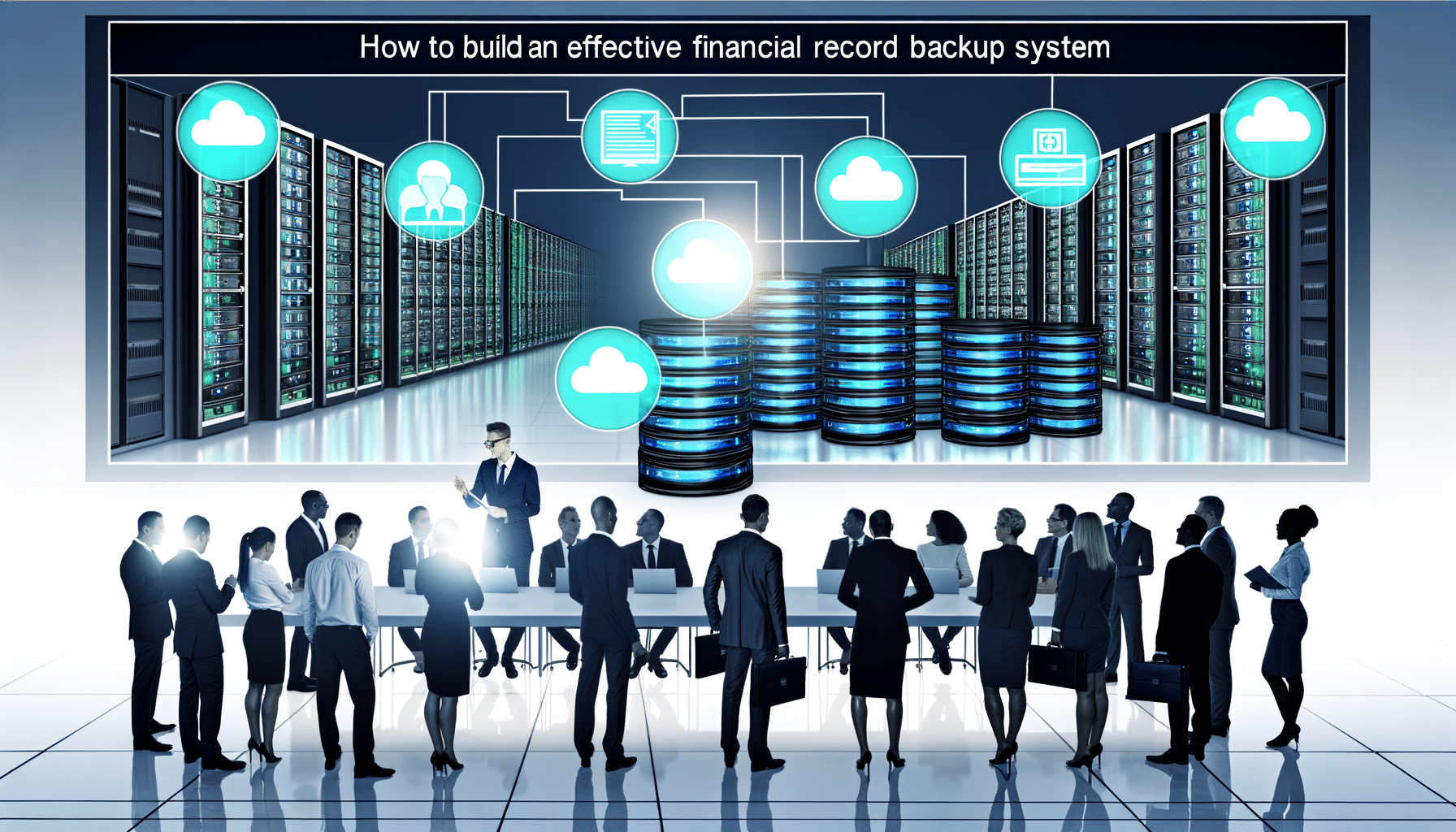- Backup Solutions
- July 11, 2024
Best Practices for Implementing Secure Backup Systems in Public Sector Record Management

In today’s fast-paced digital world, secure backup systems have become an essential part of record management for the public sector. As a founder of RecordsKeeper.AI, I’ve encountered countless scenarios that emphasize the critical nature of safeguarding sensitive information. The public sector faces unique challenges related to security, compliance, and data accessibility. Implementing best practices for secure backup systems not only protects government records against loss but also ensures the smooth functioning of public services.
Understanding the Importance of Secure Backups
The public sector handles an enormous volume of sensitive data daily. From citizen records and financial transactions to confidential government communications, the need for secure backups cannot be overemphasized. Secure backup systems offer robust protection against data loss due to cyber-attacks, hardware failures, or unforeseeable disasters.
Without a reliable backup solution, recovering from data loss can be a daunting task, leading to operational downtime and loss of crucial information. Governments and public institutions need to view backups not just as a safety net but as an integral component of their data management strategy.
Key Best Practices for Implementing Secure Backup Systems
- Data Encryption: Ensure that all data, whether in transit or at rest, is encrypted using strong security protocols. Encryption acts as a formidable barrier against unauthorized access.
- Regular Backup Schedules: Institute timely and consistent backup schedules that align with the institution’s data generation rate. This guarantees that the most current data is always available for recovery.
- Offsite Storage Solutions: Utilize offsite or cloud-based storage solutions. This diversification thwarts site-specific threats, ensuring the safety of sensitive government data even in catastrophic events.
- Comprehensive Testing: Regularly test backup and recovery procedures to verify the integrity and accessibility of the stored data. Testing helps identify vulnerabilities in the system.
- Access Control: Limit access to backup systems to authorized personnel only and maintain an audit trail for monitoring activities related to backup and recovery.
The Role of Advanced Technologies in Backup Solutions
To bolster the effectiveness of secure backup in the public sector, advanced technologies like Artificial Intelligence (AI) and Blockchain are game-changers. At RecordsKeeper.AI, we’ve embraced these technologies to enhance backup solutions, providing customers a strategic advantage.
- AI-Powered Automation: AI automates and optimizes the backup process, making backup solutions smart and adaptive to changing data landscapes.
- Blockchain for Data Integrity: Blockchain ensures the immutability and verifiability of records, raising the standard of trust in data backups.
By integrating these technologies, public sectors can gain a competitive edge in data management, ensuring not only security but also operational efficiency.
Compliance and Regulatory Considerations
Compliance is a significant concern in public sector data management. Systems must adhere to regulations such as GDPR, HIPAA, and local e-Governance standards. A robust backup solution supports compliance by providing:
- Automated Audits: Automated records of data backup activities qualify government systems for audits and reduce regulatory risks.
- Data Retention Policies: Ensures adherence to mandated data retention and deletion requirements.
Achieving compliance demonstrates an institution’s commitment to protecting personal data, thereby gaining public trust.
Conclusion
Implementing secure backup systems is a critical step towards efficient public sector record management. By following best practices and leveraging cutting-edge technologies, institutions can safeguard their data against loss while supporting compliance requirements. Investing in robust backup systems will ultimately enhance public service delivery and foster trust among citizens.
If you’re looking to modernize your record management strategy, consider exploring RecordsKeeper.AI for solutions tailored to meet your unique needs. For more insights on data management advancements, follow my journey as I continue to innovate in this pivotal tech space.
Toshendra Sharma is the visionary founder and CEO of RecordsKeeper.AI, spearheading the fusion of AI and blockchain to redefine enterprise record management. With a groundbreaking approach to solving complex business challenges, Toshendra combines deep expertise in blockchain and artificial intelligence with an acute understanding of enterprise compliance and security needs.
Related Posts

How to Build an Effective Financial Record Backup System
Learn to create robust backup systems for financial records.
- February 6, 2024

Choosing Between On-Premise and Cloud Data Backup Solutions
Compare the pros and cons of on-premise and cloud-based data backup solutions.
- July 6, 2023
Archives
- December 2024
- November 2024
- October 2024
- September 2024
- August 2024
- July 2024
- June 2024
- May 2024
- April 2024
- March 2024
- February 2024
- January 2024
- December 2023
- November 2023
- October 2023
- September 2023
- August 2023
- July 2023
- June 2023
- May 2023
- April 2023
- March 2023
- February 2023
- January 2023
- December 2022
- November 2022
- October 2022
- September 2022
- March 2019
Want to get more content like this?
Signup to directly get this type of content to your inbox!!
Latest Post
Organizing External Auditor Access
- December 22, 2024
Document Control in Manufacturing Plants
- December 21, 2024
Handling Rush Financial Report Requests
- December 20, 2024
Managing Record Access After Staff Changes
- December 19, 2024





